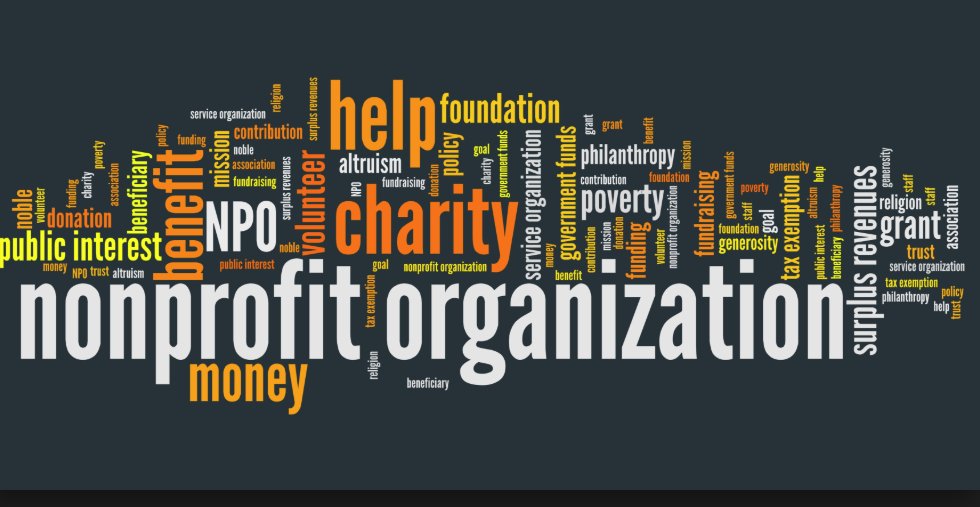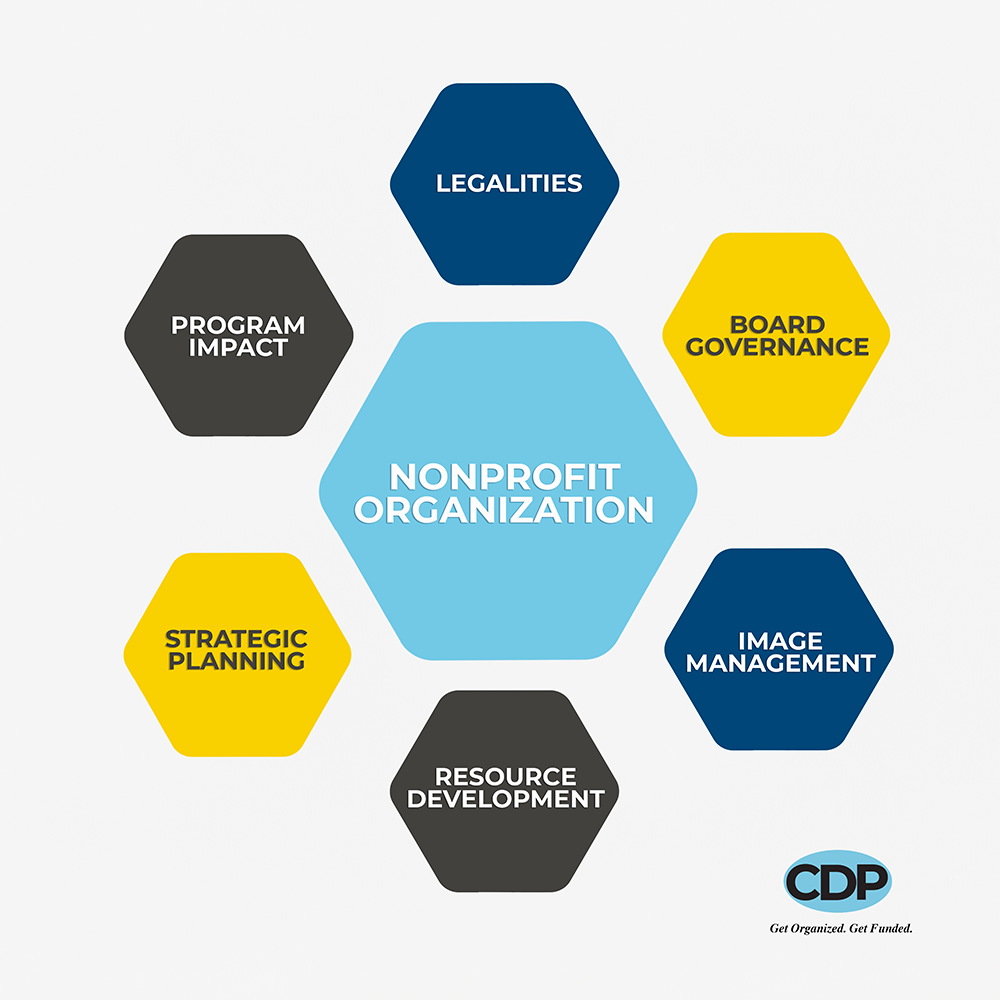Nonprofit Company: Personalized Solutions for Sustainable Development and Influence
Wiki Article
Checking Out the Diverse Functions and Responsibilities of a Nonprofit Company in Attending To Social Issues and Encouraging Modification
Nonprofit companies serve as critical agents of adjustment within society, dealing with a myriad of social concerns with multifaceted techniques. Their obligations prolong beyond simple solution provision; they involve in campaigning for, resource mobilization, and community outreach, frequently acting as a bridge between essential solutions and marginalized populations.Understanding Nonprofit Agency Duties
The efficiency of not-for-profit firms rests on a clear understanding of their varied roles within society. These companies work as important middlemans in between the general public, exclusive, and governmental sectors, addressing different social concerns and supporting for change. Nonprofit firms commonly work as provider, delivering essential programs and sources to underserved populaces. This role is essential in filling up voids that may exist in public services, guaranteeing that at risk groups have access to needed assistance.Furthermore, nonprofits play a necessary duty in advocacy, increasing recognition and influencing plan choices that affect their areas. By participating in research study and public education, these companies assist form public discussion and promote educated decision-making - nonprofit agency. They likewise offer as platforms for volunteerism, setting in motion community members to add their time and abilities toward collective goals
Moreover, not-for-profit agencies typically work as conveners, combining diverse stakeholders to promote partnership and cumulative influence. This collective strategy enhances their capability to attend to complicated social problems effectively. Comprehending these diverse duties is essential for making best use of the capacity of not-for-profit companies in developing sustainable social adjustment and improving general neighborhood health.
Neighborhood Interaction and Outreach
Efficient community involvement and outreach are fundamental parts of nonprofit companies' methods to promote links and develop count on within the communities they serve. These efforts concentrate on recognizing area needs, advertising understanding of readily available resources, and motivating engagement in programs created to deal with social problems. Not-for-profit companies employ a range of methods to engage with area participants, such as workshops, informative sessions, and collective occasions.Outreach efforts serve to reinforce partnerships with varied populaces, particularly marginalized groups that might deal with obstacles to accessibility. By making use of culturally relevant communication approaches and leveraging local partnerships, nonprofits can improve their exposure and demonstrate their commitment to neighborhood empowerment. This method not only cultivates a sense of belonging but also enhances the possibility of continual interaction.
Furthermore, reliable area engagement exceeds simple involvement; it involves actively paying attention to neighborhood participants' feedback and including their insights right into program development. This joint process ensures that the solutions used are receptive, pertinent, and tailored to the distinct difficulties encountered by the community. Inevitably, fostering strong connections with interaction and outreach can bring about more impactful treatments and a greater cumulative initiative toward promoting favorable social modification.
Advocacy and Policy Influence
Advocacy works as a crucial device for not-for-profit agencies to influence public law and drive systemic adjustment. By leveraging their expertise and neighborhood understandings, these companies can effectively represent marginalized populations and address pushing social issues. Nonprofits participate in campaigning for with various methods, consisting of public awareness campaigns, grassroots mobilization, union building, and direct lobbying of policymakers.With these efforts, nonprofit firms intend to form regulation and plan frameworks that straighten with their goal and the needs of the neighborhoods they serve. They perform study, gather data, and share compelling stories to highlight the necessity of particular concerns, making sure that decision-makers are educated and inspired to act. This procedure not just intensifies the voices of those influenced by social oppressions but additionally fosters a more comprehensive and fair policymaking atmosphere.
In addition, advocacy efforts frequently seek to create lasting structural modifications, resolving origin as opposed to merely easing signs. By focusing on policy impact, nonprofit agencies add to a broader understanding of social obstacles and promote options that can lead to sustainable enhancements in societal health. Eventually, advocacy is essential to the transformative role nonprofits play in producing a just and fair society.
Fundraising and Source Administration
Nonprofit companies depend on robust fundraising and resource administration strategies to support their advocacy initiatives and sustain their goals. By using a multi-faceted strategy, nonprofits can reduce the risks linked with reliance on a single funding resource.Resource management is similarly crucial, as it includes the tactical appropriation of both human and financial resources to optimize impact. Nonprofits must create budget plans that align with their goals while making sure openness and responsibility to stakeholders. This involves routine surveillance of expenditures and look here adjusting strategies as required to enhance resource usage.

Cooperation and Partnerships
While lots of companies seek their objectives separately, cooperation and partnerships can considerably enhance the efficiency of nonprofit firms. By working together with other nonprofits, federal government entities, and economic sector organizations, nonprofits can pool sources, share expertise, and intensify their influence on social concerns. Collaborative initiatives frequently bring about ingenious services that might not be attainable individually, leveraging the toughness of each partner to deal with intricate difficulties.
Ultimately, efficient collaboration needs clear communication, shared goals, and common respect among partners. By embracing a participating method, nonprofit firms can develop sustainable networks that not only address prompt social issues yet likewise add to long-lasting systemic modification, cultivating a more fair culture. Through cooperation, nonprofits can thrive and optimize their potential for purposeful effect.
Conclusion
Nonprofit companies function as critical entities in dealing with social concerns and cultivating change within neighborhoods. With diverse features such as neighborhood resource, involvement, and advocacy management, these companies successfully mobilize sources and assistance for underserved populations. Their collective efforts with numerous stakeholders boost the capability to influence public policy and advertise structural changes. Ultimately, the multifaceted functions of nonprofit firms dramatically add to the quest of social justice and the renovation of community wellness.this content Recognizing these diverse functions is essential for optimizing the potential of not-for-profit agencies in developing lasting social modification and enhancing overall area wellness.
Effective area interaction and outreach are fundamental parts of not-for-profit agencies' methods to develop and foster links count on within the areas they offer. By functioning together with other nonprofits, federal government entities, and personal industry organizations, nonprofits can pool sources, share knowledge, and intensify their impact on social problems.Not-for-profit agencies serve as essential entities in fostering and addressing social problems adjustment navigate to this website within communities - nonprofit agency. Eventually, the complex duties of not-for-profit agencies substantially contribute to the pursuit of social justice and the renovation of community wellness
Report this wiki page